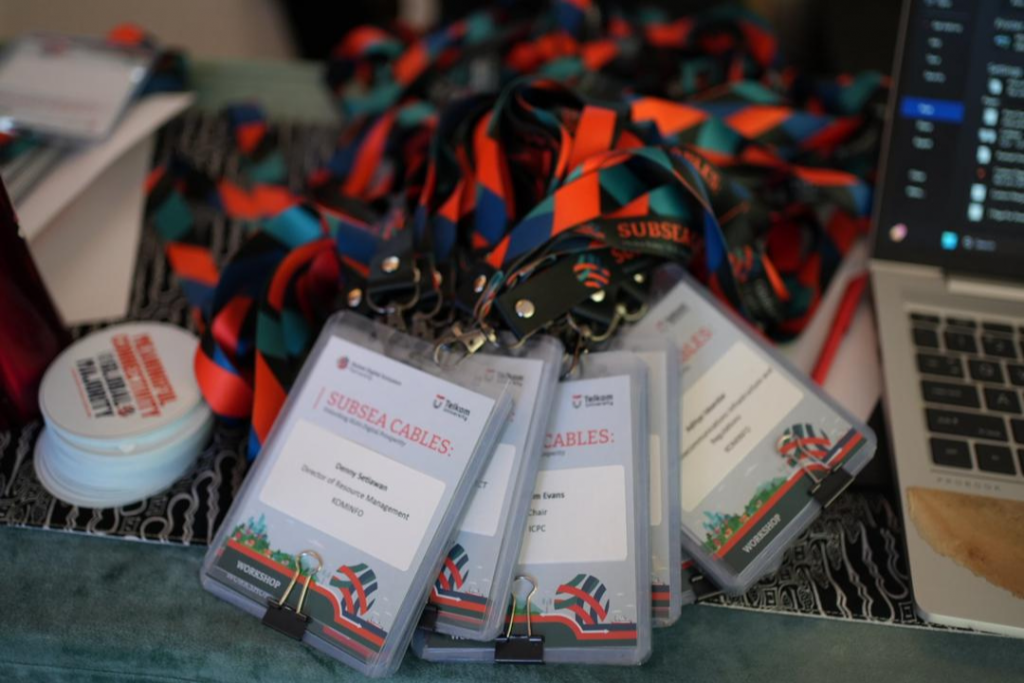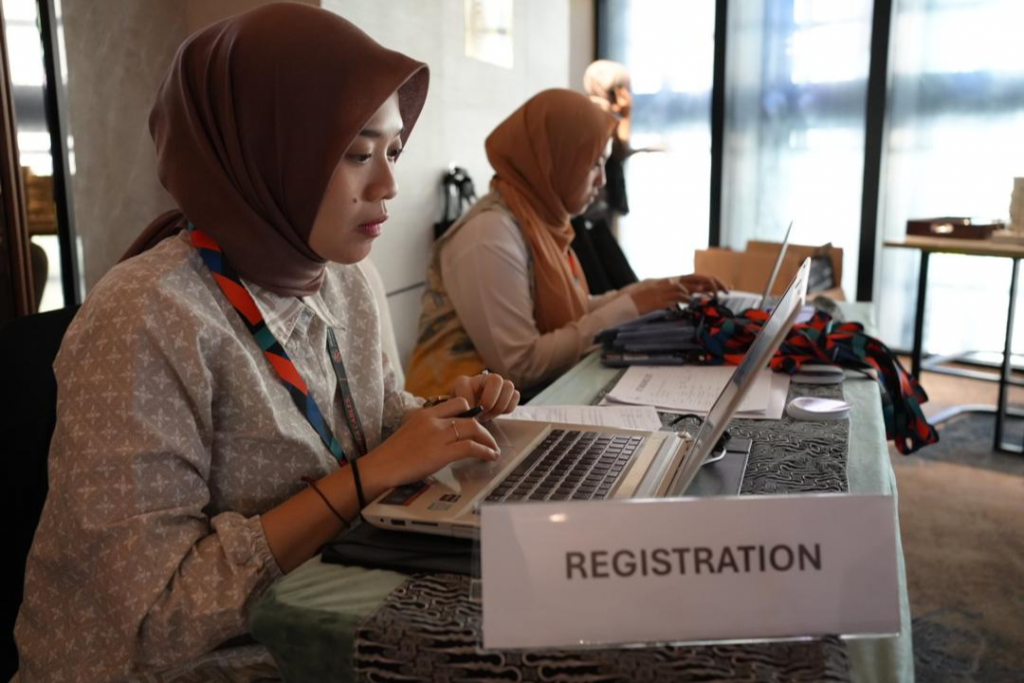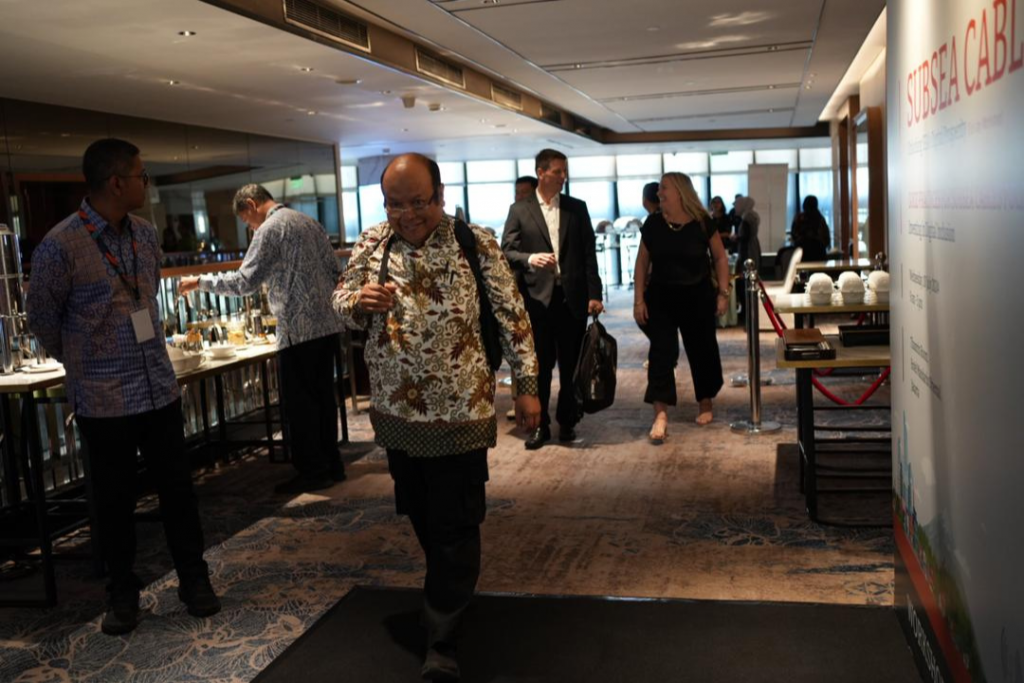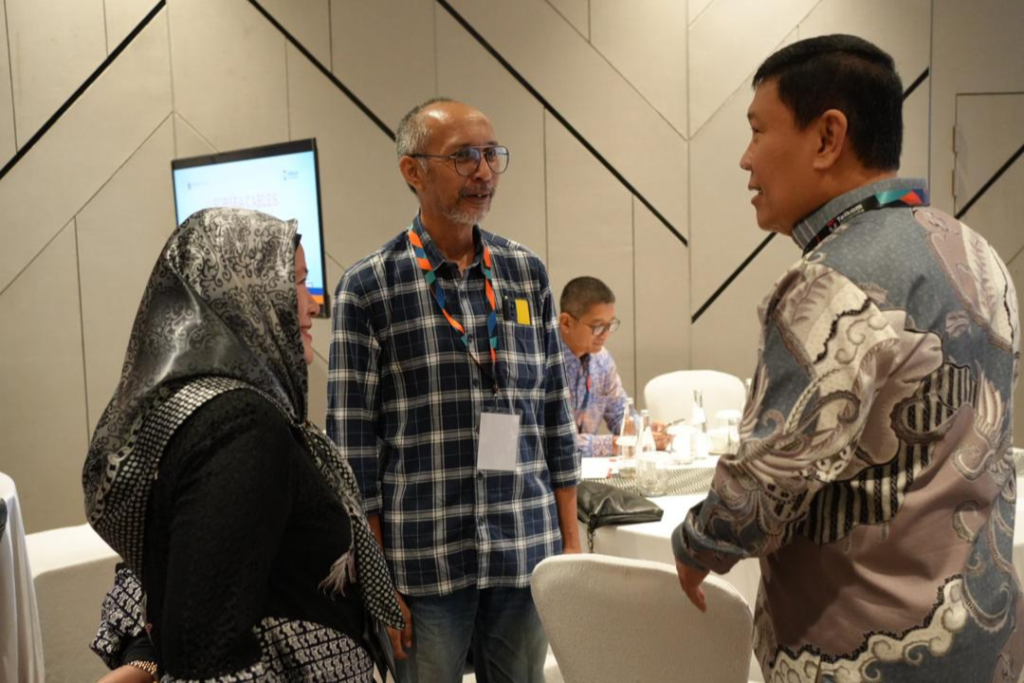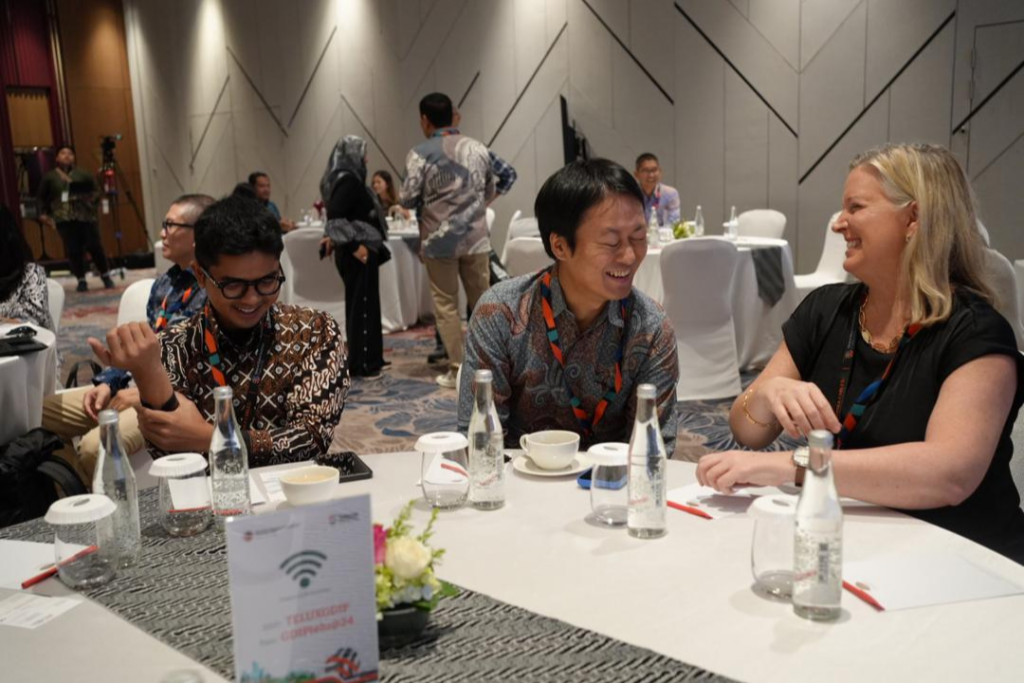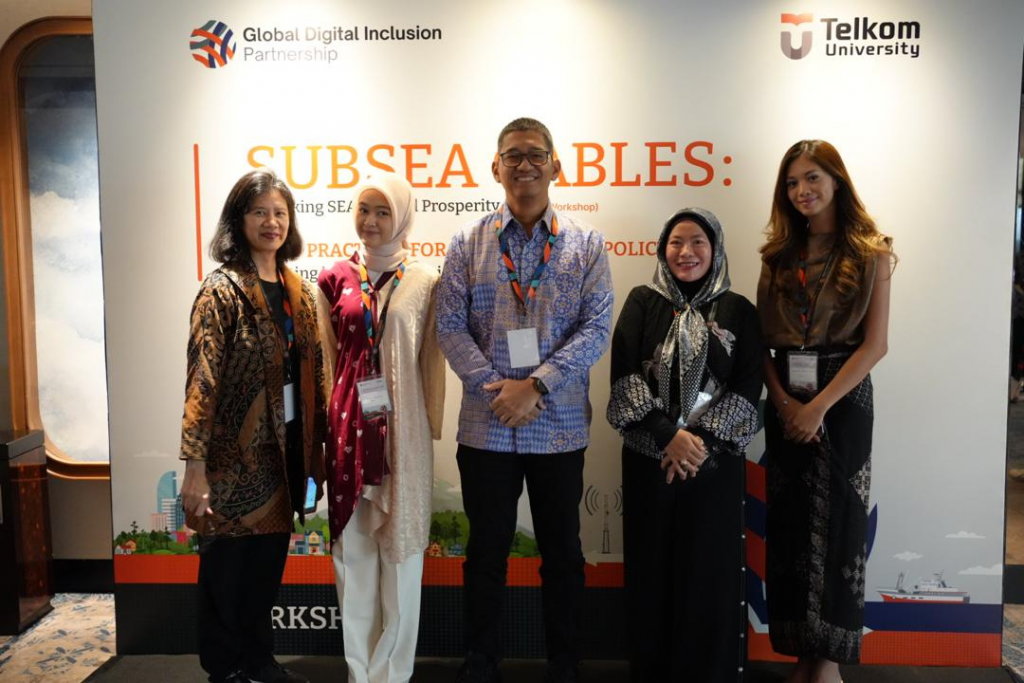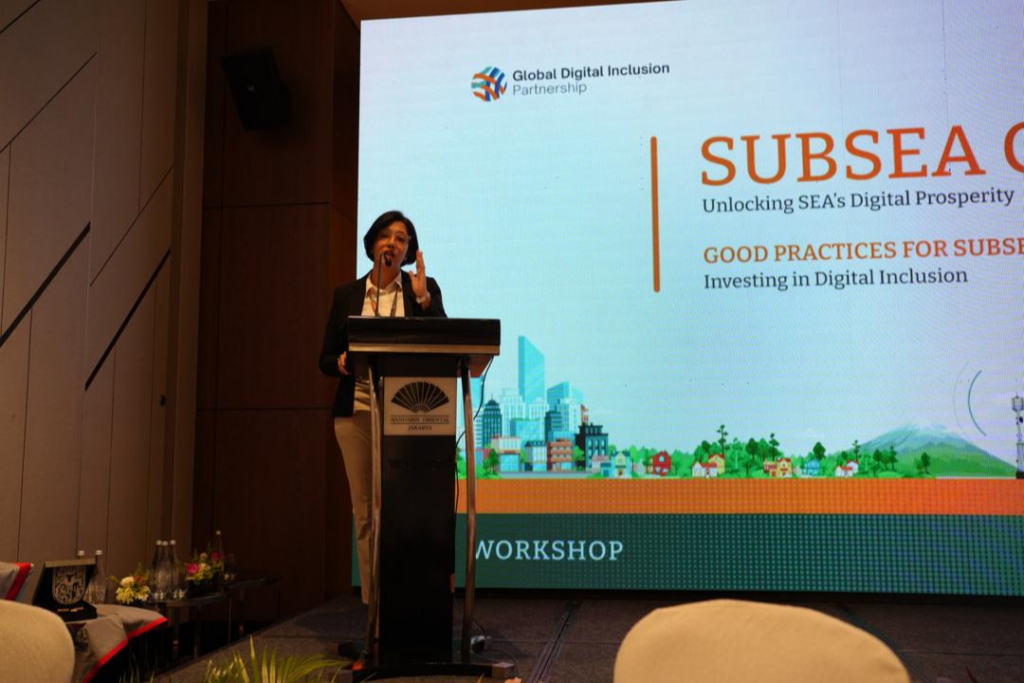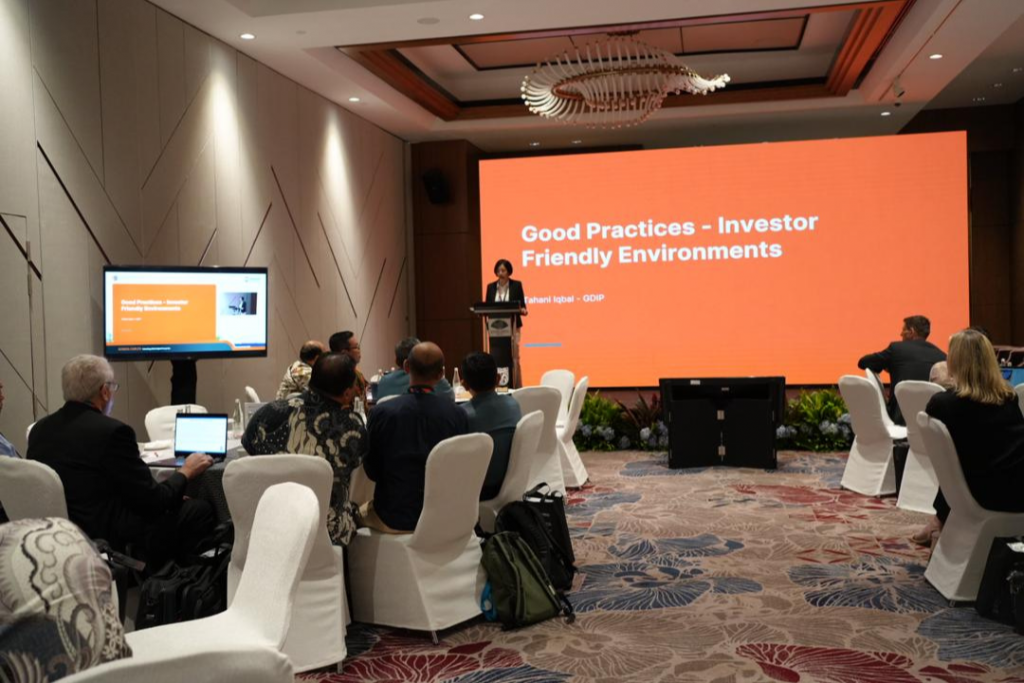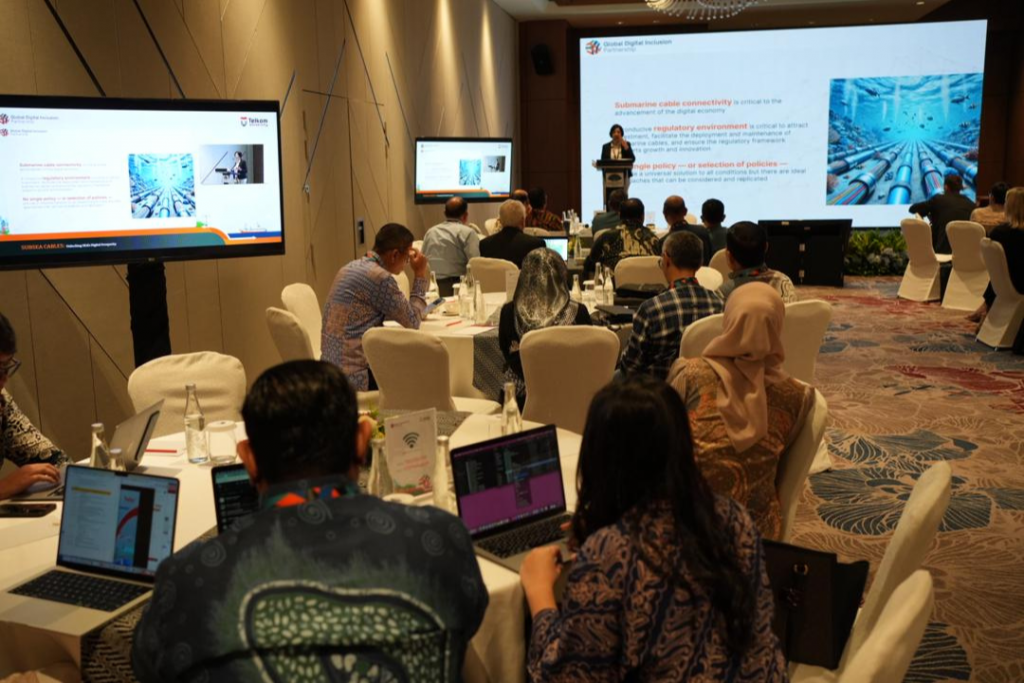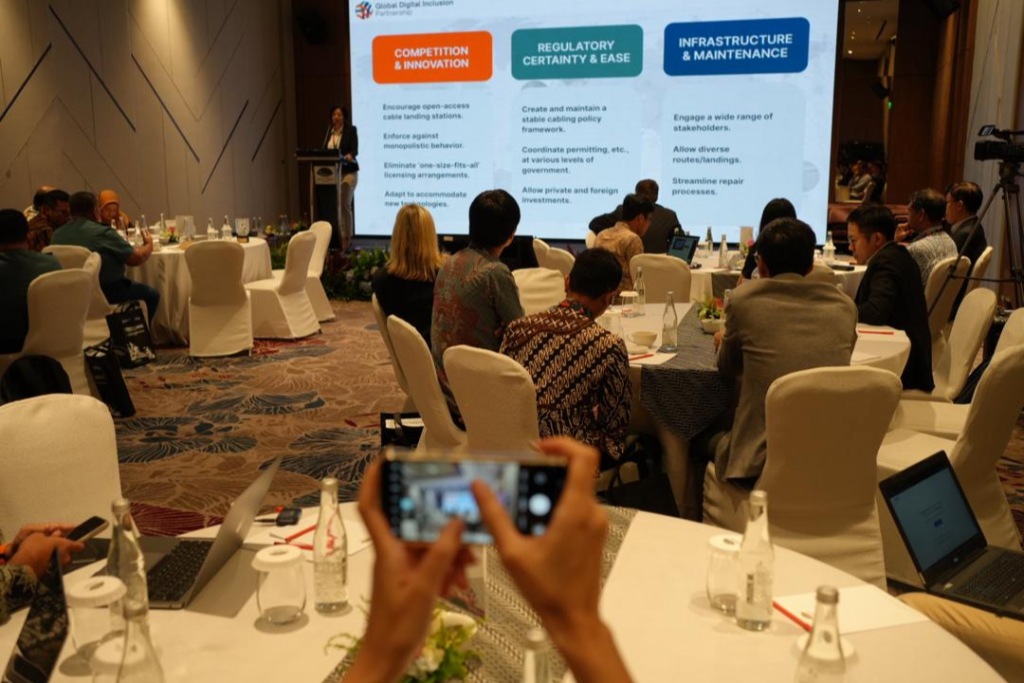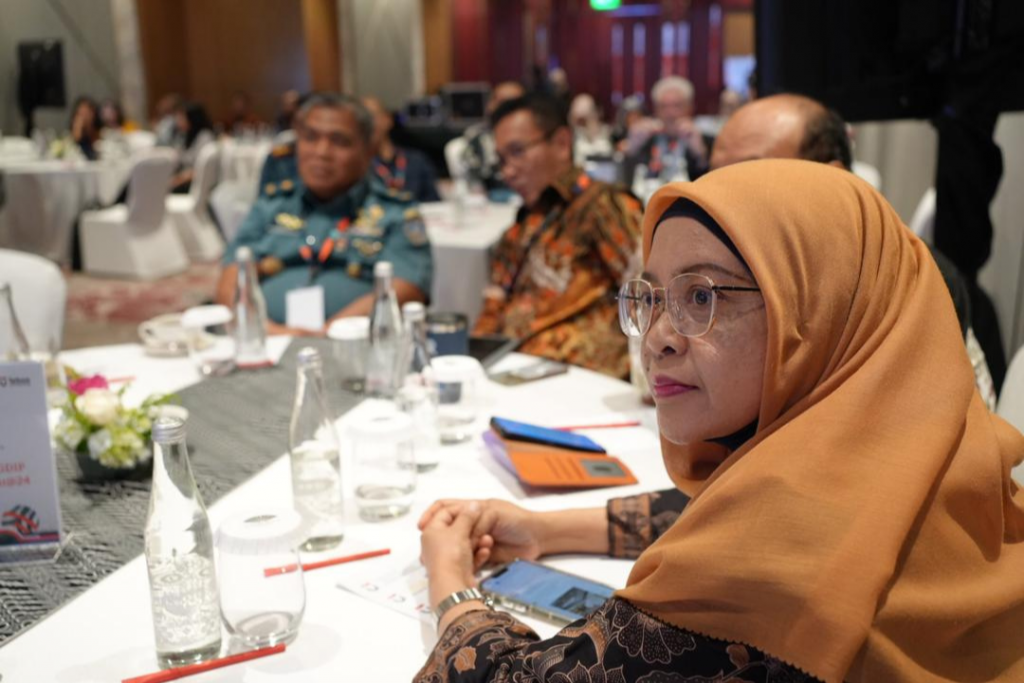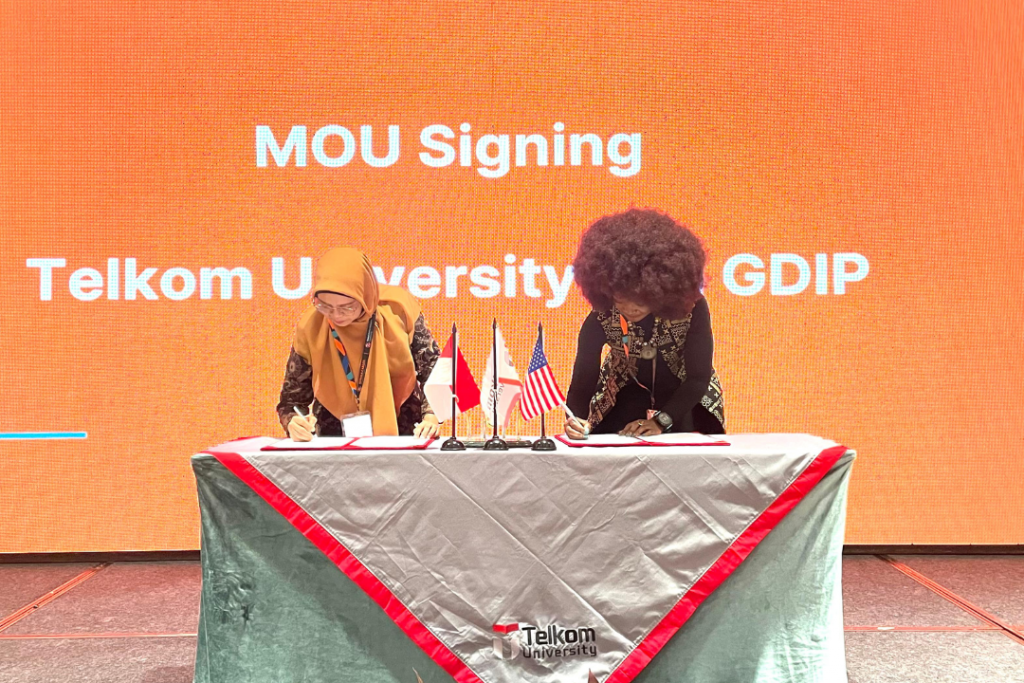This post was written by Kenneth Dimalibot, GDIP Senior Communications Manager.
Subsea cables are a critical infrastructure for Southeast Asia’s digital transformation. It is the backbone of the internet and the global ambition for universal, meaningful connectivity — carrying about 95% of internet traffic and enabling more than USD $10 trillion worth of transactions every single day. However, regulatory hurdles can impede investment and hinder connectivity across the region.
A full-day workshop consisting of presentations and roundtable discussions among policymakers and industry players was organized by the Global Digital Inclusion Partnership (GDIP) and Telkom University with the aim of empowering relevant stakeholders with a comprehensive understanding of the impact of subsea cables on digital inclusion and encouraging informed decision-making to support existing and planned subsea cable investments in the Asia-Pacific region.
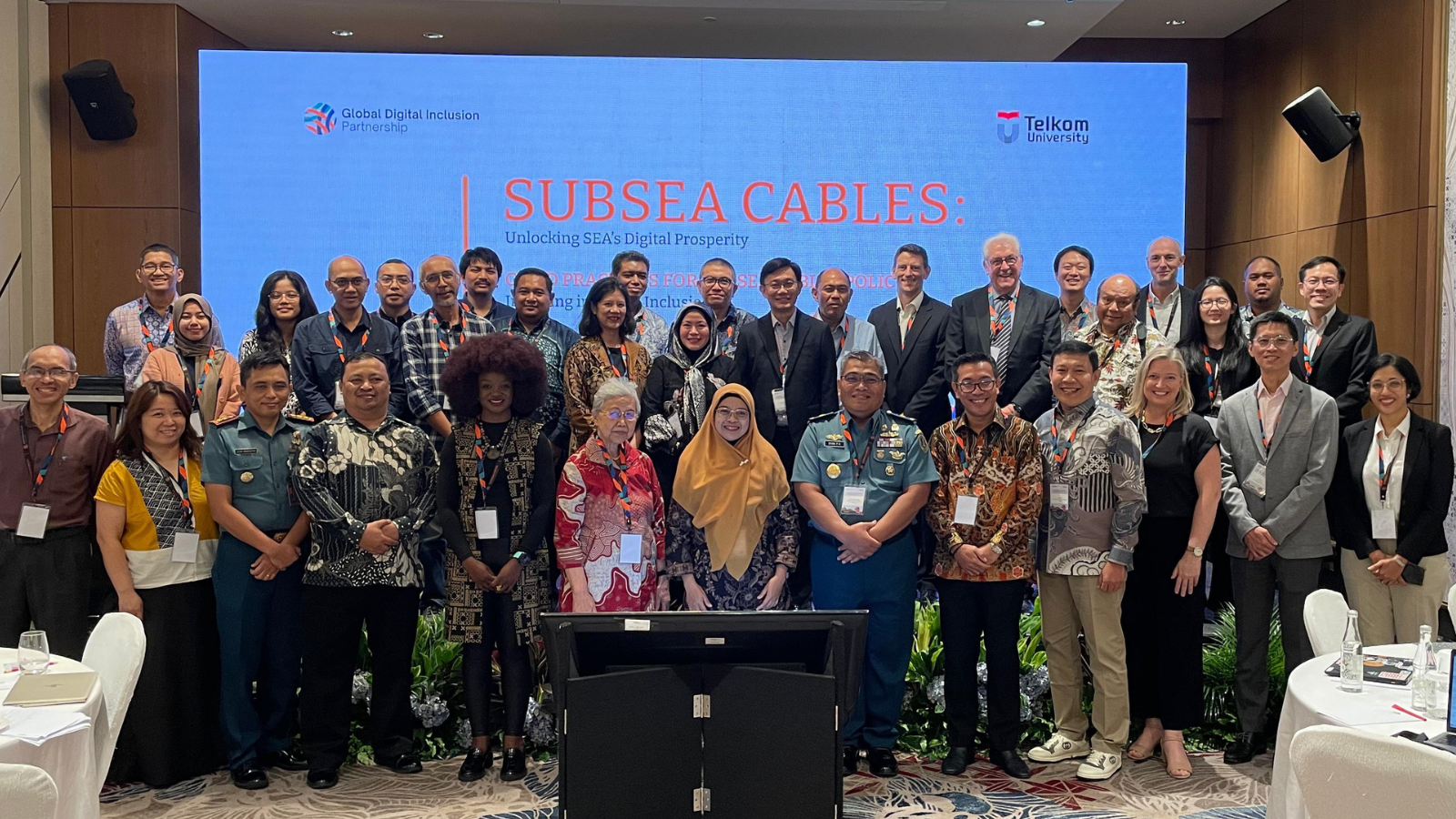
Held in Jakarta, Indonesia, on 10 July 2024, the event gave participants a thorough grasp of how subsea cables affect digital inclusion and universal, meaningful connectivity. The participants — including policymakers, regulators, industry leaders, academics, and civil society representatives from Indonesia, the Philippines, Singapore, Thailand, Vietnam, Australia, the United States, and across the region — actively shared experiences and learned from invited experts and from each other. This inclusive multi-stakeholder approach ensured a comprehensive exchange of ideas and perspectives vital for shaping the future of digital connectivity in the largest and most diverse part of the world.
The initiative aims to support current and future subsea cable investments throughout Asia by promoting informed decision-making, sharing best practices, and fostering collaboration to create an enabling policy regulatory environment.
“GDIP is honored to conduct this regional workshop with our partners in Indonesia. Working directly with policymakers, private sector, and civil society stakeholders is critical to ensure that subsea cable policy and regulation is grounded in good practice evidence and focused on achieving universal meaningful and affordable broadband as the foundation for digital inclusion in the region,” said Sonia Jorge, GDIP Executive Director.
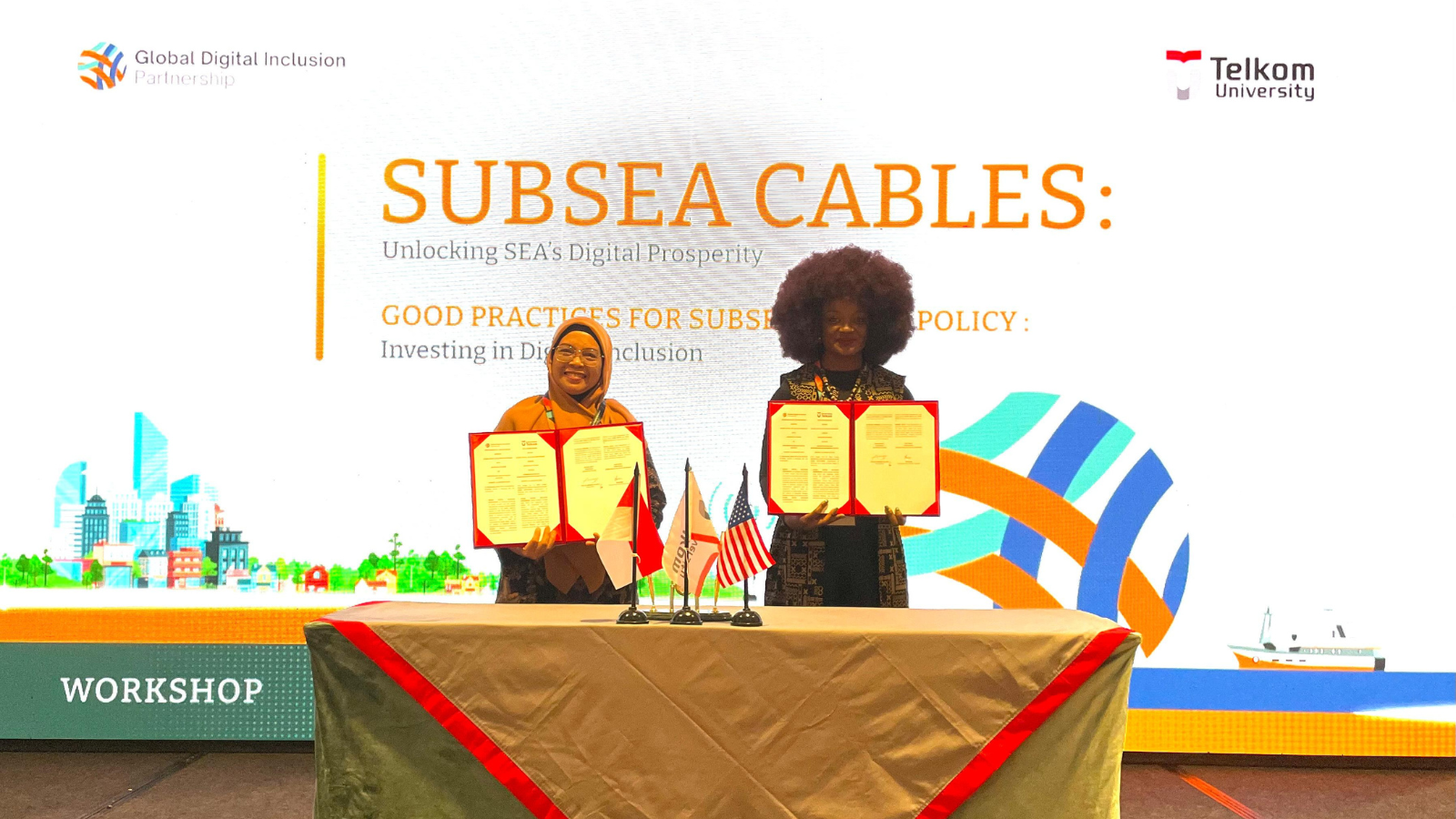
During the event, GDIP and Telkom University signed a memorandum of understanding (MOU) to work together to advance digital development in the region.
“Telkom University signed a memorandum of understanding with GDIP to promote the empowerment and development of digital societies. Through this, we open the widest possible opportunities for collaboration, and we believe that our involvement will develop closer friendships and stronger partnerships,” said Rina Pudji Astuti, Telkom University Vice Rector of Research, Innovation, and Partnership.
As part of this agreement, GDIP and Telkom University will collaborate in developing, promoting, and adopting regulatory and policy best practices that will help attract submarine internet cable network investment in the Asia-Pacific region and take the necessary steps to encourage and promote knowledge exchange and cooperation.
In line with promoting good practices for subsea cables policy in the regions, GDIP will also hold workshops in Nairobi, Bahrain, and India later this year. Earlier this year, a similar workshop was done during Smart Africa’s 13th Council of African Regulators Meeting in Lilongwe, Malawi.
For media inquiries, please contact press@globaldigitalinclusion.org

About Telkom University
Telkom University is one of the most prominent and most modern private universities in Indonesia. The fast growth of ICT (Information and Communication Technology) combined with the cultural diversity of Indonesia leads Telkom University to focus on ICT-based education and research in the field of engineering, business, and creative industry.
About GDIP
The Global Digital Inclusion Partnership is a coalition of public, private, and civil society organizations working to bring internet connectivity to the global majority and ensure everyone is meaningfully connected by 2030. GDIP advances digital opportunities to empower and support people’s lives and agency, leading to inclusive digital societies.
